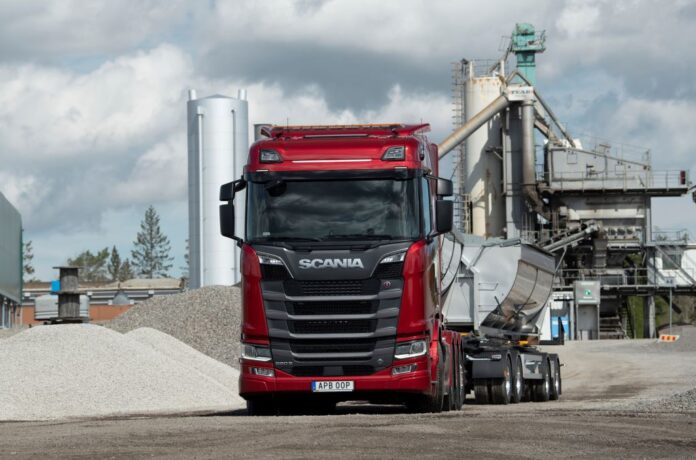In light of SA Transport Minister Barbara Creecy’s recent description of the new supply chain and logistics operating model as being one of ‘hyper-globalisation’, it is clear that for ‘net-zero’ to be achieved, truck fleets will have to run green trucks and advanced business data processing tools; not only for fleet sustainability but for compliance purposes too writes FleetWatch correspondent Paul Collings.
The ‘green’ trucks available now (and in future) are a knowable quantity in terms of emissions but the UN and multinational consignors and consignees are also seeking compliance with those unpredictable quantities to do with ‘human behaviour’, hence ESG (environmental, social, governance) protocols, which are now a prerequisite for fleets servicing global and corporate supply chains.
The data required for enterprise ESG performance reporting demands advanced cloud-based services to deliver data, metrics and business intelligence (BI) on a multitude of nodes within typical fleet operations. Essentially, beyond the green lorry and telematics data, AI, IoT, and big data analytics will play an increasingly important role in best-practice fleet management.
Early adopters will lead
Tapping into this thought process, Scania Southern Africa MD Erik Bergvall says the factors that will determine the leading transport operators in the near future are very different to those that have traditionally been accepted as benchmarks for success.
“Historically, transport businesses have been considered easy to replicate. Transport operators had access to the same trucks, trailers and routes. Today, the transport industry is on the brink of a significant transformation driven by technological advancements, sustainability measures and evolving consumer demands. The operators who lead this shift will gain a competitive advantage that slow adopters will find difficult to match,” says Bergvall, adding that simply adding more trucks to a fleet is no longer enough. Transport operators need to increase efficiencies too.
“The adoption of innovative capabilities is allowing progressive operators to move faster than competitors, introduce differentiated services and adopt new systems. Increasingly, the ability to collect, understand and apply data intelligence, from vehicles and other assets, will mean the difference between operations as usual and operational transformation.
“Technology is playing a pivotal role in supporting transport companies to adapt and thrive. The potential for fleets to harness intelligent insights from diverse data sources is revolutionising fleet management. Real-time tracking, data analytics and predictive modeling are enabling transport operators to respond efficiently to disruptions, while staying ahead of the curve.”
Scania Southern Africa MD Erik Bergvall: “Historically, transport businesses have been considered easy to replicate. Transport operators had access to the same trucks, trailers and routes. Today, the transport industry is on the brink of a significant transformation driven by technological advancements, sustainability measures and evolving consumer demands.”
Scania Southern Africa MD Erik Bergvall: “Historically, transport businesses have been considered easy to replicate. Transport operators had access to the same trucks, trailers and routes. Today, the transport industry is on the brink of a significant transformation driven by technological advancements, sustainability measures and evolving consumer demands.”
Data sourced from sensors and cameras is enabling significant cost efficiencies. By tracking factors such as vehicle idling, route planning and driving styles, fuel saving improvements can be made. Data-led predictive maintenance supports cost savings by identifying issues before they cause downtime. Long-term data tracking can measure these improvements, so operators can accelerate their efforts. Transport operators who win at cost efficiencies will be successful,” Bergvall explains.
Beyond green trucks
“Data is also playing a significant role in helping transport operators to reach their sustainability goals. Sustainability is no longer a fringe concern. It is a driving force. To reduce the environmental impacts of transport operations, real-time data insights are key. Data can support operators to decide how and where to start their transition to sustainable vehicle solutions. Metrics include lifetime usage and average daily utilisation rates.
“Sustainable vehicles are designed to maximise fuel economy and total cost of ownership, while reducing harmful emissions. They have a significant role to play in assisting transport companies to optimise efficiencies that will deliver a competitive advantage,” Bergvall concludes.
Scania is a pioneer of smart truck development and alternative energy truck driveline development and fittingly, Bergvall’s insights on how local fleet operators can build enterprise sustainability are spot on.
Returning to Minister Creecy’s heads-up on world-wide transport entering an era of hyper-globalisation, the message is clear: if a truck fleet wants global/blue-chip business, it has to have Big Data reporting power to improve operational efficiencies, fleet profitability and enterprise marketability.
The picture may look a bit grim for small fleets that possibly can’t afford green trucks and hi-tech software services but it’s FleetWatch’s opinion that any Southern African trucking operation can survive and thrive in this David & Goliath arena by investing in skills development and savvy procurements that satisfy the new ‘green/data/ESG’ global business paradigm. More power to you!



